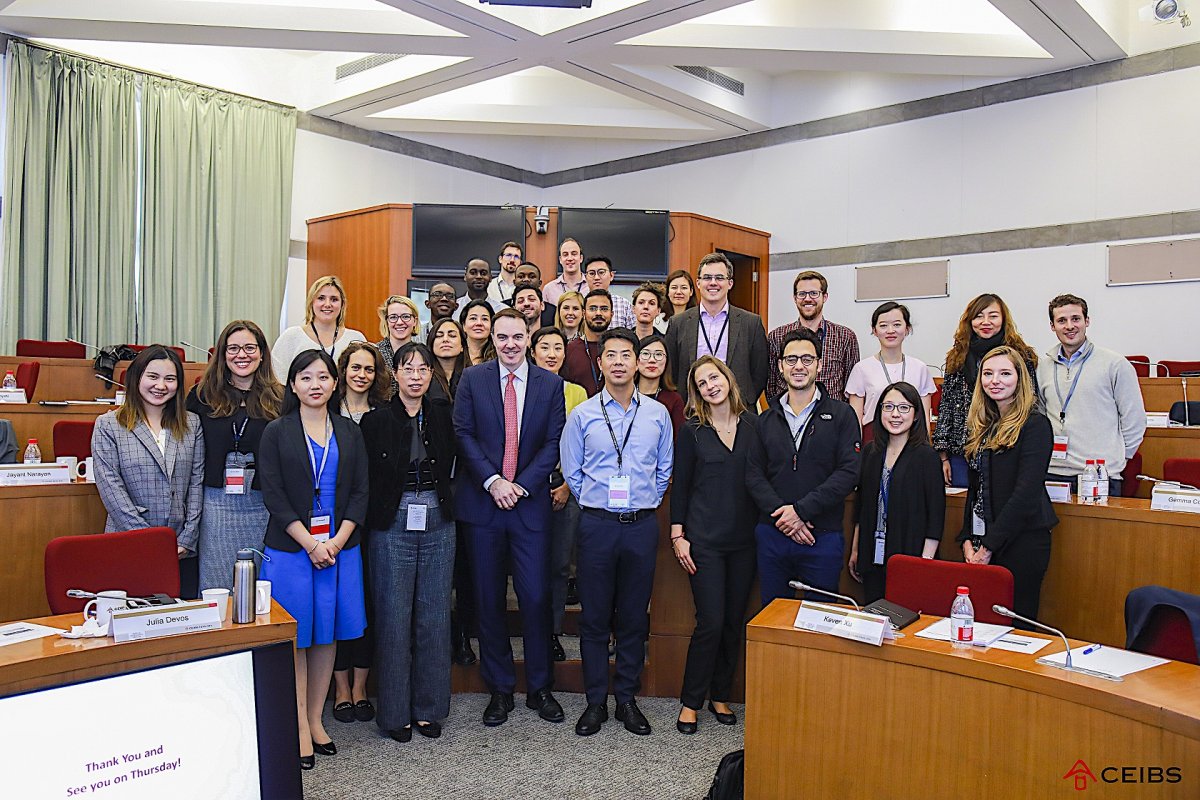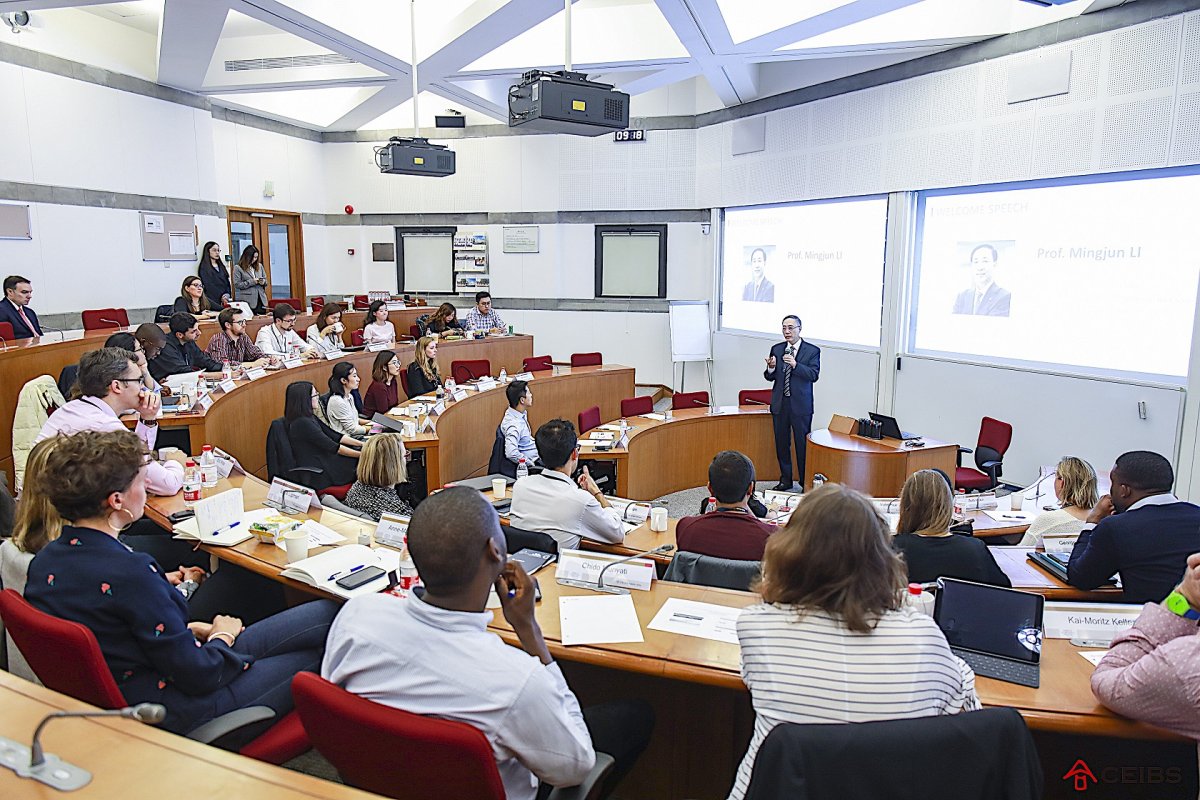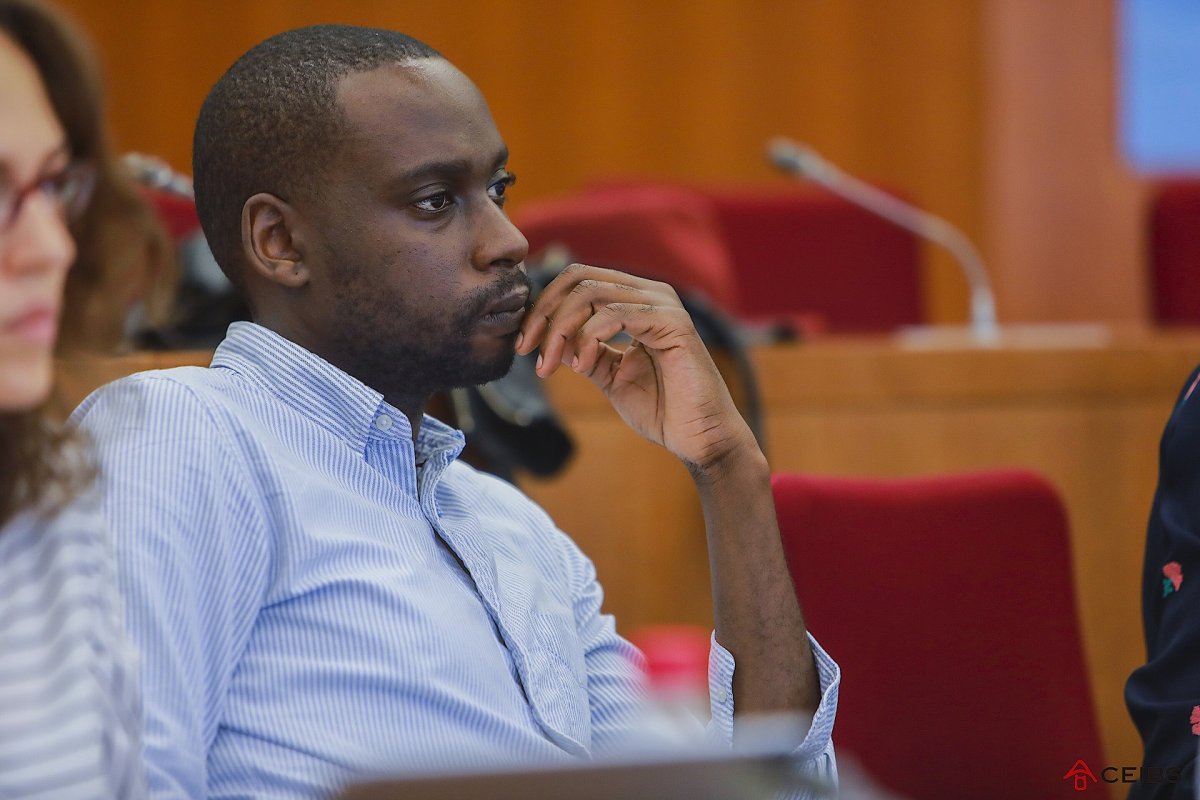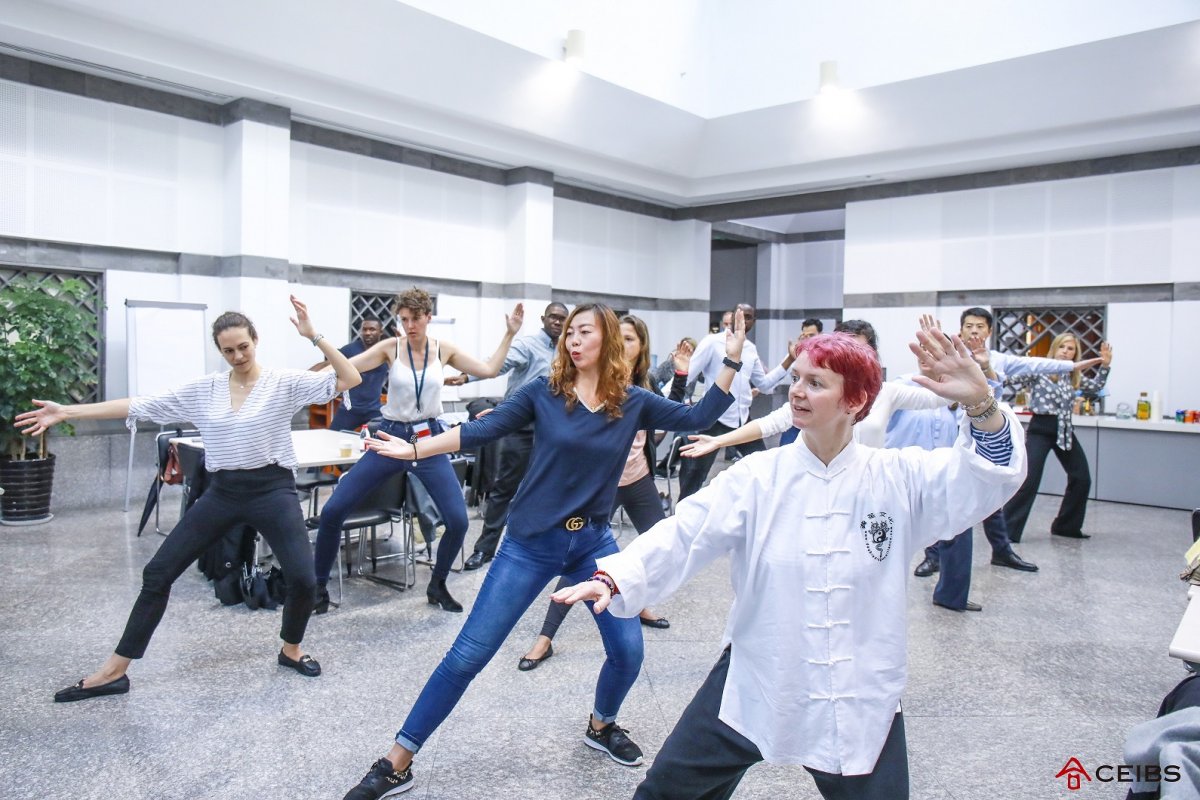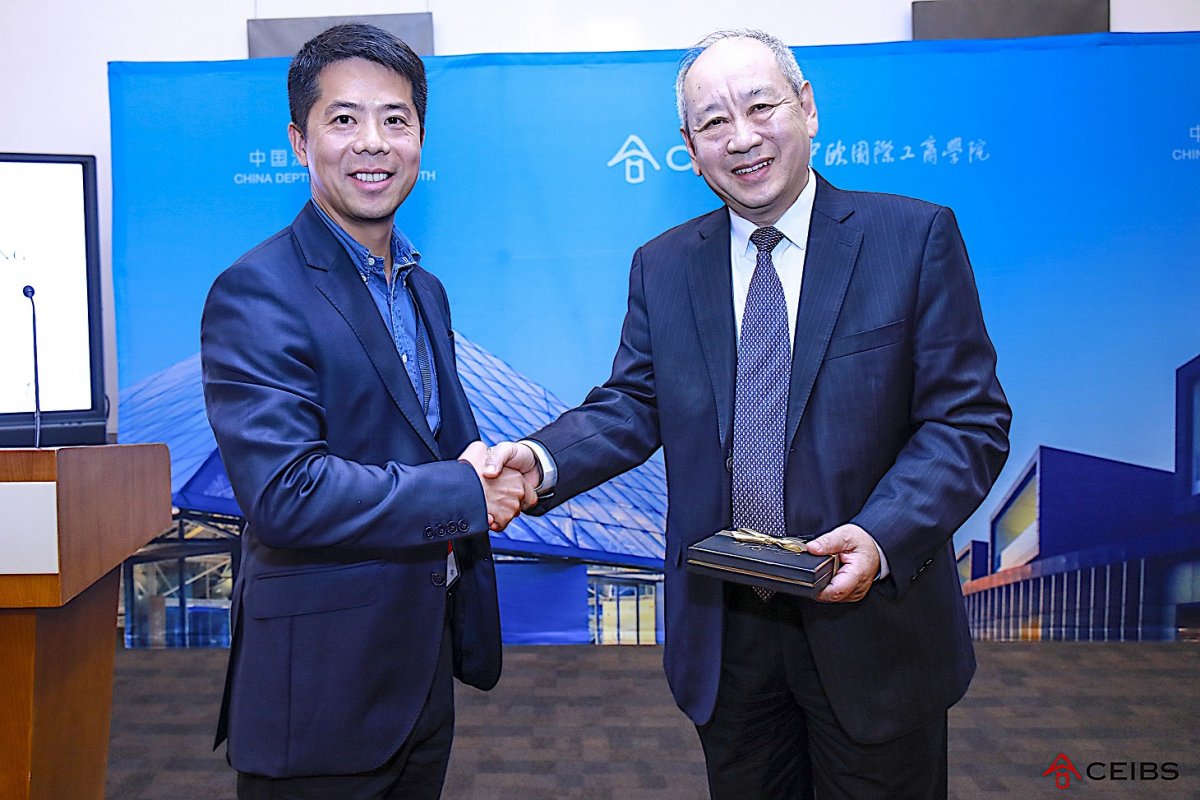CEIBS Welcomes WEF Global Leadership Fellows to Shanghai Campus
October 29, 2018. Shanghai – As Asia’s only academic partner of the World Economic Forum’s Global Leadership Fellows (GLF) programme, CEIBS recently welcomed the GLF’s Cohort 16 to the school’s Shanghai Campus for a look at how globalisation, innovation, and emerging technologies are transforming the Chinese business environment.
The GLF programme is an important part of the WEF’s broader mission to promote cooperation in the global public interest in the era of the Fourth Industrial Revolution. The China module follows last month’s WEF Annual Meeting of the New Champions (AMNC) in Tianjin where Premier Li Keqiang reaffirmed China’s pledge to work harder to advance reform and opening-up, harness new technologies and business models, and further stimulate innovation in order to help drive global growth. CEIBS is one of only a small number of schools with which the GLF works globally.
First launched in 2005, the GLF programme aims to develop individual leadership potential through a combination of academic study, on-the-job learning, individual coaching, and access to world leaders. It regularly features some of the world’s top experts in leadership, management, organisational behaviour, and experiential learning. This latest China module included lectures by CEIBS Assistant Professor of Strategy Richard Carney, Associate Professor of Entrepreneurship Taiyuan (Terry) Wang, Assistant Professor of Marketing Lin Chen, Professor of Economics Che Jiahua, and Lecturer of Management Michelle Zheng, along with China Executive Leadership Academy in Pudong (CELAP) Professor Jiang Haishan. The module also included on-site visits to Shanghai Liangxin Electrical Co., Ltd. and Shanggong Group Co., Ltd.
More than 170 participants have graduated from the GLF programme to date, representing a wide diversity of cultural and professional backgrounds. The roughly 20 individuals who make up the current cohort represent more than a dozen countries and a wide range of academic and professional experience. During their five days of lectures, workshops, and cultural activities, we caught up with Global Leadership Fellows Chido Munyati and Gwendoline de Ganay to learn more about their experience during their stop in Shanghai.
Born in Zimbabwe, Munyati originally trained as a corporate lawyer before his journey ultimately led him to apply for the GLF programme and he says it is a decision he doesn’t regret.
“In terms of personal development, whether it has been through education or through work, it’s been the most transformative experience I’ve ever been through,” he says. “The Forum has invested heavily in us and we’ve had the unique opportunity to participate in these modules all around the world. There is nothing like it.”
Through her work as a Community Lead for the WEF’s Young Global Leaders programme, de Ganay says she has had the opportunity to see many parts of the world. Nevertheless, she says the Shanghai trip has been a special experience and has taken her out of her usual comfort zone.
“I’ve worked and lived in North America, Latin America and Europe, but I’d had little exposure to this region of the world,” admits the French national. “Having been able to learn about China from some of the best professors at one of the best schools possible has been pretty amazing.”
For Munyati, the CEIBS trip marked his second visit to China in only just over a month, having recently participated in the AMNC in September. If nothing else, he says the experience has allowed him to go beyond having a superficial understanding of China and to marvel first-hand at some of the changes taking place in the country.
“The transformation China has made in such a short period of time is remarkable,” he observes. “You read about the rapid pace of development, but I think the scale of it is hard to understand until you experience it in person.”
The in-class sessions and company visits also offered participants a unique look into some of the cultural differences having a profound impact on marketing and innovation in a country where things are changing at an almost unprecedented rate.
“We had a really exciting session about how Chinese companies are innovating and how their approach is different to other models of innovation,” de Ganay says. “Breaking it down and understanding why the Chinese approach to disruption has been so incredibly successful and fast was particularly eye-opening for me.”
Having recently transitioned to a role as a Knowledge Lead, Munyati says the opportunity to learn about China has also left him with some additional thought to apply to his new position, where he will be responsible for shaping the WEF’s geo-political agenda for Africa.
“China is obviously an important partner for Africa as its leading investor,” he states. “So, I think it’s important for me to understand what China’s role is and how it’s going to help shape the continent in the decades to come.”
As for de Ganay, she says she hopes to return to China again in 2019 when the WEF holds its Young Global Leaders and Alumni Annual Summit in Dalian. She also adds that the experiences she has had outside of the classroom, including doing tai chi and trying authentic Chinese food, have left her with valuable insights into East Asian culture and values that she can apply to her job at the organisation.
“The cultural aspect is really important in the events that I organise at the WEF,” she concludes. “We also try to have moments where we take people outside of the conference setting and put them in touch with the local environment they’re in, so I’m really glad we’ve had a chance to do that this week, too.”







